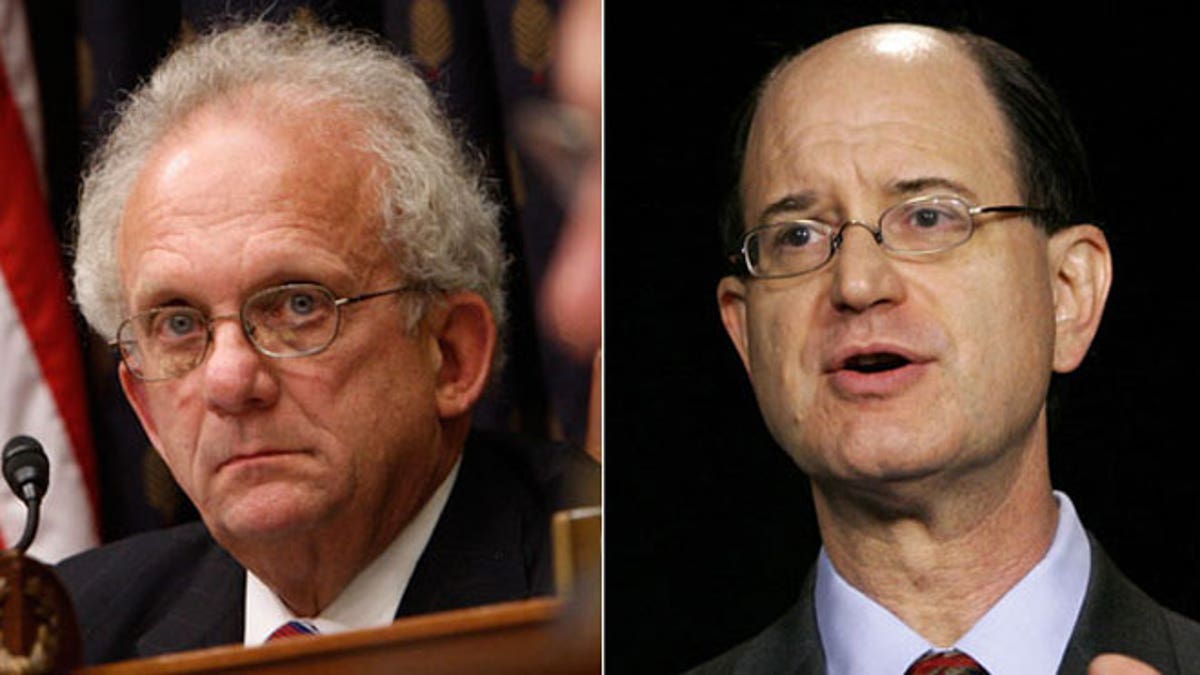
Howard Berman, D-Calif., left, and Brad Sherman, D-Calif., right. are shown (AP)
Rep. Brad Sherman, D-Calif., came out ahead of fellow California Democratic Rep. Howard Berman, in the first of two races pitting the longtime incumbents against each other this year.
California’s new “jungle” primary system puts every candidate on the same ballot. The top two victors then go on to the general election in the fall, regardless of whether both are from the same party.
Despite Sherman's first-place finish in the primary, some political observers say Berman may ultimately be in better position for the general election. They believe he can attract more independents and Republicans than the more outspokenly liberal Sherman. The two lawmakers hold similar voting records.
Berman, the top Democrat on the House Foreign Affairs Committee, has served since 1983. Sherman has served since 1997.
Known as “Hollywood’s Congressman,” Berman touted support from Tinseltown figures like actress Betty White, who filmed a 30-second ad on his behalf. He also rode in President Barack Obama’s helicopter to a fundraiser at George Clooney’s home in early May.
Additionally, Berman secured endorsements from key California politicians, including Democratic Gov. Jerry Brown, Sens. Barbara Boxer, D-Calif., and Dianne Feinstein, D-Calif., Los Angeles Mayor Antonio Villaraigosa and even House Oversight Committee Chairman Darrell Issa, R-Calif.
Meanwhile, Sherman won backing early on from former president Bill Clinton. The move was widely viewed as a payback for Berman’s support for now-Secretary of State Hillary Clinton during the 2008 Democratic presidential primary.
The newly drawn district lines included more than half of Sherman’s constituents. That meant Berman had to introduce himself to most voters in the district despite the backing of the Washington and Hollywood establishments.
The faceoff is expected to be one of the most expensive congressional races in history. According to Federal Election Commission reports through May 16, Berman had $2.4 million to spend while Sherman boasted over $4 million in the bank. Some political observers think the race could cost ultimately cost around $10 million between the two candidates by the end of the general election.




